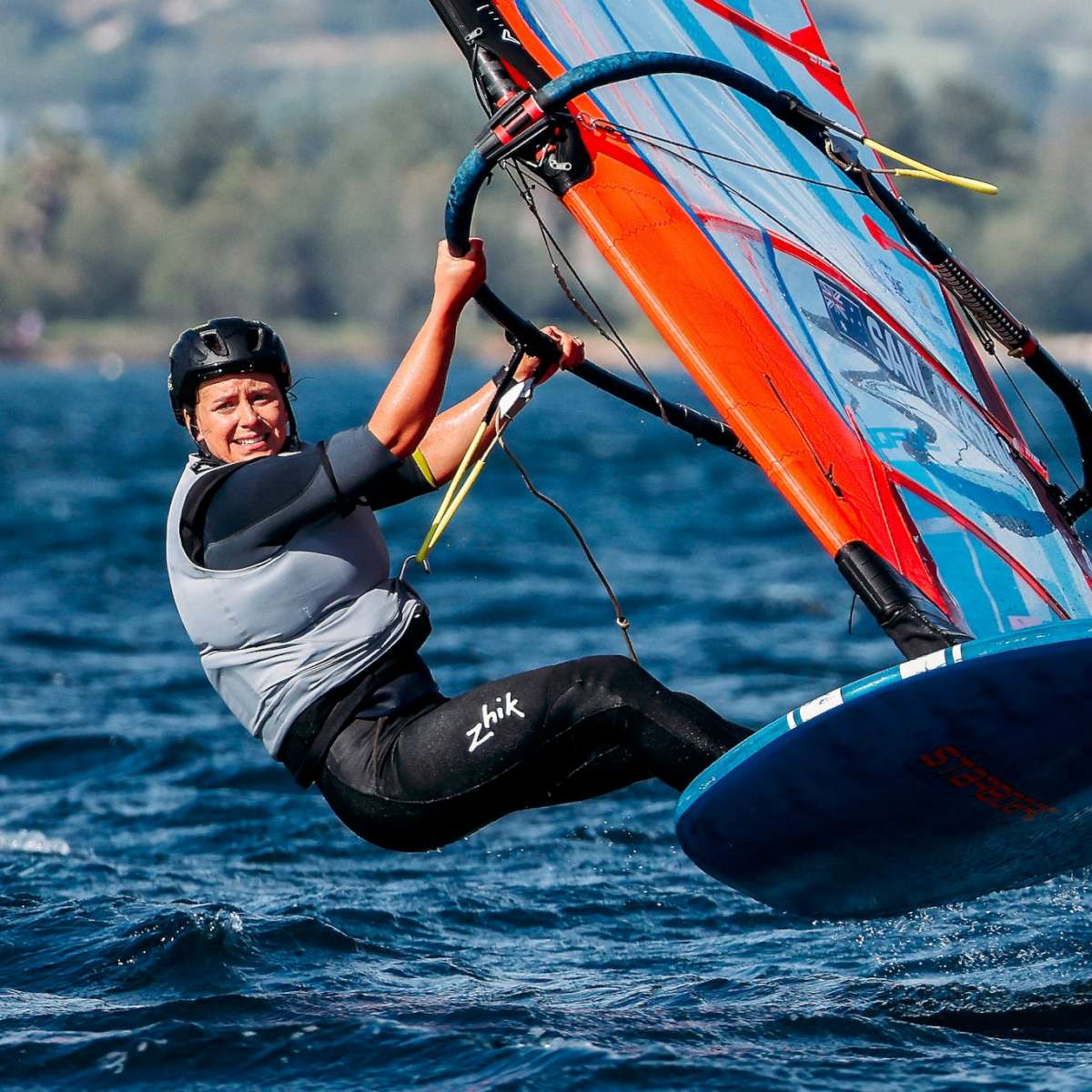Mid-September it may be, but conditions for the Royal Ocean Racing Club’s 2020 IRC championships felt more like June this weekend, with shorts and T-shirts conditions and allowing a full schedule of racing to be laid on by PRO Stuart Childerley and his team. The event concluded today with two windward-leeward races on the central-eastern Solent in more variable and generally lighter winds than on Friday or Saturday.
Despite being new to their A35 Arcus, John Howell and Paul Newell’s crew managed perfect scorelines on day one and today to win not just IRC Three, but the IRC National Championship overall. Given their lack of familiarity with their boat, to earn themselves this coveted title, said Newell “…was beyond our wildest expectations. We were trying to improve our crew and it turned out to be a very successful first outing – an amazing result! It has been a fantastic regatta. There’s been some great racing. I haven’t heard a bad word said about it – thanks very much RORC.”
Conditions this weekend allowed the Arcus crew to try out all their sails including their #1 jib in today’s lighter winds. “Today was a lot nicer although there was a weird tide line and IRC Two weren’t taking any prisoners when we got in among them,” continued Newell.
Demonstrating how the RORC’s IRC rating rule smiles on professionals and amateurs alike, the Arcus crew is firmly in the latter camp, comprising principally co-owners Howell and Newell and their sons, who come from the Buckinghamshire area.
At the opposite end of the IRC spectrum, a 1-3 today was enough to comfortably secure Niklas Zennström’s FAST40+ Rán victory by five points in IRC One, but a few uncharacteristic blemishes on their scoreline dropped them to second overall.
Having led the fleet around the race track this weekend, Tony Langley’s TP52 Gladiator finally made up her time to secure her first win of the event in today’s final windward-leeward. “I was a bit rusty, but it is just like falling off a bike!” quipped Langley. “What a great weekend – we couldn’t have picked better weather. It was very enjoyable, nice conditions and good race management. It was nice to be back on the water.” This was Langley’s first event of 2020.
The hardest fought victory across the three classes was that of 2012 winner David Franks aboard his J/112E Leon. They had been handicapped with Franks only coming out of COVID-19 isolation on Friday; maths not working in their favour from the event’s mandatory crew number reduction rules (for social distancing), but mainly from being one of the lowest rated boats in IRC Two and having to find lanes and constantly fight their way up through the fleet. On the plus side the Leon crew had sailed together previously this year. Otherwise, Franks had no complaints: “It has been fabulous, a very good event, well organised. It was lovely to see so many boats out on the Solent.”
Leon posted a 1-2 today with Robert Bottomley’s MAT 12 Sailplane 3 first in the final race. “Normally we do well in the light, despite the fact that we are the smallest boat,” continued Franks. “Today the wind’s velocity was going up and down and was all over the place in direction, so it was hard to know what was going on. It was very challenging, a lot of work.”
Running alongside has been the IRC Two-Handed Nationals. With the increased popularity of this discipline due to it being social distancing-friendly and becoming an Olympic event for Paris 2024, the fleet was packed with talent. Going into the final day Dee Caffari and James Harayda on the Sun Fast 3300 Gentoo was tied with Jeremy Waitt and double Olympic gold medallist Shirley Robertson on Richard Palmer’s JPK 10.10 Jangada. However a 1-3 was enough to secure Gentoo the title as Jangada’s 4-4.5 caused her to drop off the podium, albeit just one point short of second.
Caffari and Harayda coming second in the Drheam Cup was enough to gain them the GBR berth in the recent EUROSAF Mixed Offshore European Championship, where their result was disappointing. As Caffari explained: “We were selected, but had to pay to go: We went to Italy, sailed in an unknown venue on an unknown boat with no support. We had a good inshore race and then made some critical errors offshore and didn’t have the performance we wanted. We were determined to come here and prove a point about why we were selected. We are delighted with our result.”
Gentoo was launched in today’s first race, consolidating their lead on the second leg of their round the cans race by committing to their powerful Code 0 early, but then suffering after being rolled by Gladiator.
Caffari was pleased by the quality of the fleet: “A lot of sailors were here who know what they are doing and know these waters and the tides. It is about eliminating errors and getting around the course cleanly.”
Race Committee
Behind them it was close with second to fifth places separated by just 1.5 points. Ultimately it was Gareth Edmondson and former Artemis Offshore Academy graduate Hugh Brayshaw, who came home second on countback after winning today’s second race by just 16 seconds. Sailing a chartered Sun Fast 3600, this result was a complete surprise for Edmondson who praised his co-skipper, with whom he last sailed doublehanded offshore two years ago. “Hugh is the genius and I just do as I’m told – an autohelm that speaks!” However Brayshaw added their success was down to trust and relying on each other. Both were delighted to be out on the water for the first time this season: “It was fantastic with people simply being able to sail and race and compete. And the standard seemed very high. It was very tight.”
Due to social distancing restrictions no prizegiving was held.


























